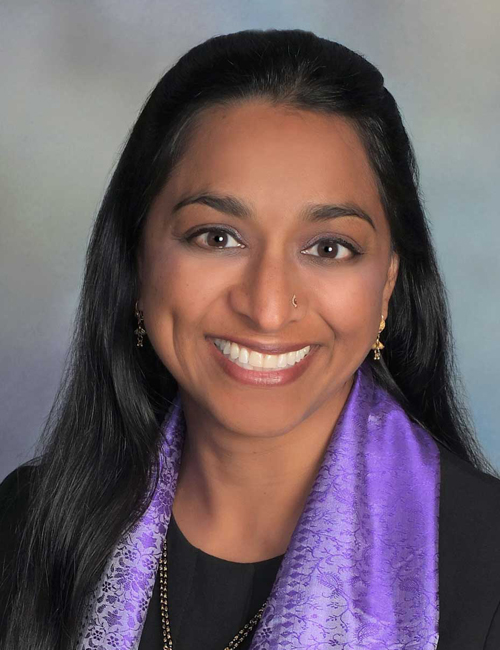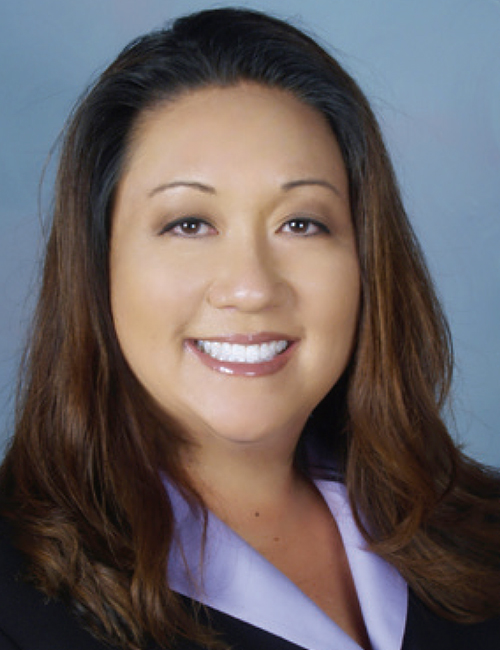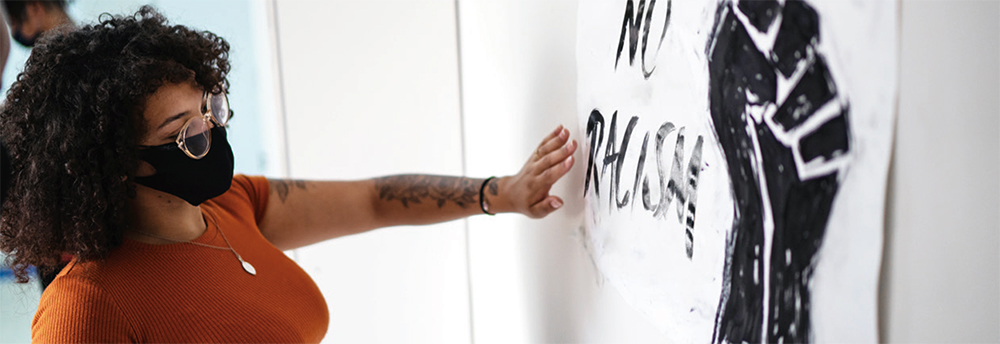



One district’s journey toward racial equity and inclusion
The Poway Unified School District is an award-winning TK-12 school district in the northern suburbs of San Diego, serving 36,500 students in 39 schools.
It was May 2020, the pandemic was still in its early stages here in the U.S., and we were all navigating distance learning and drive-thru celebrations. Candidly speaking, any equity and anti-bias work our district had initiated over the last couple years had taken a back seat to figuring out how to completely reinvent how we educate our students. As a board, we were meeting via Zoom, grappling with extremely difficult decisions and ever-changing public health guidance about when and how to reopen our campuses.
It was in the midst of this COVID-19-induced turmoil that George Floyd was killed by Minneapolis officers during an attempted arrest that ended tragically. As a nation, we collectively witnessed the news coverage of the arrest footage and subsequent protests, and struggled to process what was happening and explain it to our children. Schools are the cornerstones of our communities, and educators play an important role in influencing perceptions and processes. Our community needed Poway USD and its board of education to publicly take an unwavering stand against racism. I reached out to then-Board President Michelle O’Connor-Ratcliff and student board member Mariana Akins to collaborate on an Anti-Racism Resolution. In our resolution, we acknowledged that we were being called upon to be more visible in our resolve to work for change. Additionally, the heightened level of civic engagement from our students and communities created an opportunity for us to work even harder to address the racial, cultural and ethnic disparities in our schools.

- “In sixth grade, an eighth-grader in my PE period saw a shirt on the floor that said 100 percent cotton on it and told me ‘pick that cotton you negro before I lynch your a–.’”
- “The popular guy thought it would be funny to tell me to ‘go back to my own country’ and many others would chant ‘build that wall’ in my presence. I can’t even begin to tell you the number of people that ask me what I’ll do without my green card.”
- “In middle school, during lunch people would throw rice that they got with their orange chicken at me and call me chink.”
This is just a very limited sampling of the hurtful and humiliating experiences that our students have dealt with in our schools over the years. Many of these children did not feel empowered to speak up, or doubted that their concerns would be addressed by staff or administrators. These accounts brought racism to the forefront in a way that could no longer be ignored, even by those who were resistant to acknowledging the problem. Our students were leading the charge for change.
Our board responded to this sense of urgency and pressing need by passing the Anti-Racism Resolution on June 23, 2020. This would serve as a launching point for our Racial Equity and Inclusion Plan, which is intended to carry out the goals set forth by the board in the resolution. Our district staff did not hesitate to address the community-wide call to action. Knowing our community, staff and students have high expectations of our district, we rose to the moment and took on both navigating through the pandemic and simultaneously building and implementing the Racial Equity and Inclusion Plan.
Since 2017, Dr. Marian Kim Phelps has served as the first female and first minority superintendent of Poway USD:
As superintendent, one of my top priorities is to ensure all of our students, staff and families feel safe and welcome on our campuses. But I know that is not always the case. In Poway USD, I have personally heard from parents who have felt their children were unfairly treated in our schools because of the color of their skin. I have heard from students — even from elementary school students — about racist interactions with their peers on social media or in person. While we had been addressing these issues in earnest before our school closures, our students made it very clear that Poway USD still had work to do.
One of the first steps in implementing the Racial Equity and Inclusion Plan was to reach out to the students behind @BlackinPUSD to invite them, as well as other students representing our Black Student Unions, to meet with district leadership, staff and parents on a newly formed district wide Racial Equity Committee. We also connected with our long-time parent group partners, including Small and Mighty and Concerned Parents Alliance, to participate in this work. The foundation of our racial equity work has been relational trust. Equity work is accomplished through relationships, yet we knew that trust had been broken with many of our families of color.
The next step in our plan was to hold districtwide community conversations on racial equity organized by elementary-middle-high school feeder patterns. Our community conversations created the opportunity to be open and honest about our missteps and accountable about our commitment toward improvement. Through listening to our diverse community and hearing their experiences, we would be positioned to strengthen our work, foster healing of past hurts and set goals together. Engaging with our community and planning based on their shared experiences ensured our efforts addressed improvements from their perspective, rather than ours. This helped district staff focus and prioritize the goals in the board-directed Racial Equity and Inclusion Plan, and we were able to show the community that their input mattered by reflecting their priorities in the plan. After 16 community conversations with hundreds of families, students, board members and staff attending, and five meetings of our Equity Committee, we provided a report to the board of education on our progress, and presented the Racial Equity and Inclusion Plan for approval. The plan was widely supported by our community and passed unanimously on Oct. 15, 2020, by our trustees.
As part of that plan, from fall 2020 through present day, we have:
- Examined our own data through the lens of equity and inclusion — including a deep dive into staff demographics and student discipline and achievement
- Updated our hiring strategies and practices, which led to the hiring of additional diverse staff (administrators, teachers, classified)
- Created site-based equity teams to expand on district and site-based initiatives
- Provided anti-bias training for staff and devoted professional growth days to equity
- Created new high school ethnic studies and ethnic literature courses that are A-G approved
- Created an online hate/harassment reporting tool for each high school site
- Conducted curriculum reviews and expanded diverse authors and texts, going beyond just literature and history classes, to include STEM and Visual and Performing Arts instructional materials
- Formed a restorative justice practices committee
- Made nearly every school a No Place for Hate school (in partnership with the ADL, formerly known as the Anti-Defamation League, an organization fighting anti-Semitism and hate)
Moving forward, this work cannot stop with our schools. Our community must also say “enough is enough.” We must replace complacency and denial with commitment and resolve. Change is oftentimes painful but imagine the pain of students who have been marginalized and discriminated against for years. All of our children are precious, and we owe it to our young people to do better. Even when we are struggling with what to say and we don’t have all the answers, we must engage each other in difficult conversations. We cannot remain silent. This must be a shared responsibility for everyone in education and beyond.